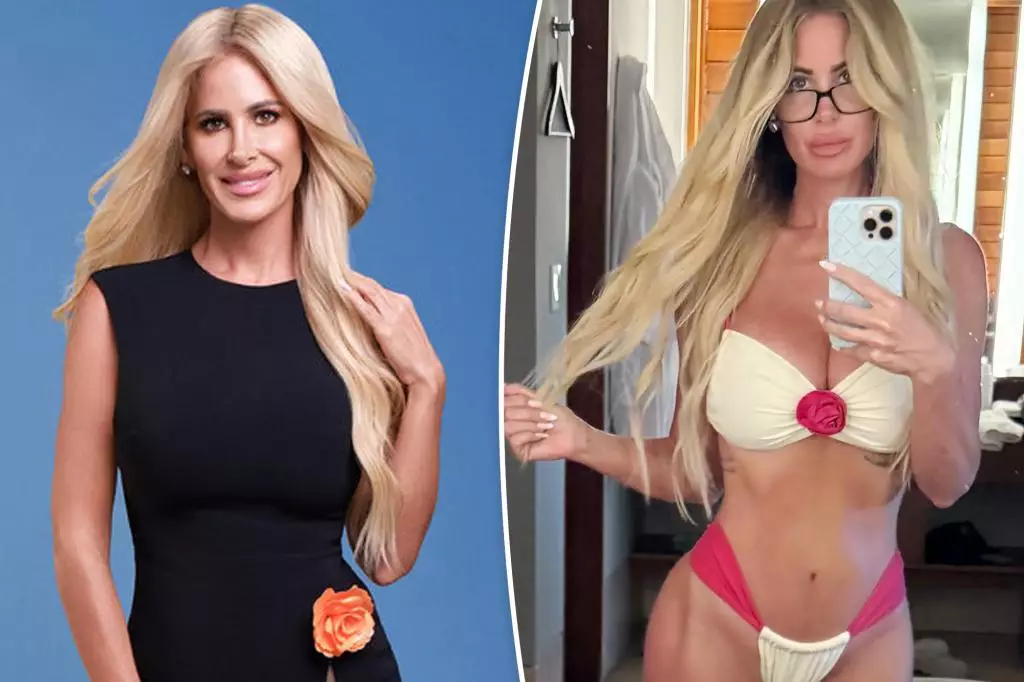Kim Zolciak’s openness about her plastic surgeries reveals a profound perspective on womanhood and self-care that often goes unspoken. In a society obsessed with youth and perfection, her candid confession challenges the stigmas surrounding cosmetic enhancements. She attributes her multiple procedures to celebrating her sacrifices as a mother, asserting that caring for her body isn’t vanity — it’s a badge of honor. This perspective invites us to rethink the societal pressure that equates motherhood with neglecting personal aesthetics. Instead, Zolciak advocates for a more empowering narrative: maintaining one’s confidence through intentional choices, regardless of age or life challenges.
Her stance also underscores a critical question: in a culture that often demonizes plastic surgery, why should women feel ashamed for seeking to feel good in their own skin? Zolciak’s declaration pushes back against the notion that natural aging equates to neglect or failure. Instead, she frames her procedures as acts of self-love—an affirmation that beauty and motherhood are not mutually exclusive. Her perspective suggests that women can take control of their appearances in ways that reflect their unique identities and personal stories.
The Complexity of Public Scrutiny and Personal Autonomy
While some critics accuse her of superficiality or question her motivations, Zolciak’s transparency sheds light on the complex relationship she has with her body. Her candidness is not a plea for validation, but a powerful assertion of autonomy over her image. She openly discusses her surgeries — from breast enhancements and tummy tucks to skin-tightening treatments — emphasizing that these decisions are personal and justified by her own standards of self-respect.
However, her narrative also exposes how society often punishes women for aligning their external appearance with their personal desires. In the age of social media, women like Zolciak navigate a minefield of judgment, often facing accusations of superficiality or accusations of being disconnected from reality because they opt for cosmetic procedures. Yet, her willingness to share her journey promotes a broader conversation about trust, authenticity, and the importance of owning one’s choices. It’s an empowering reminder that body autonomy should be respected, regardless of public opinion.
Beyond the Surface: Rethinking Beauty, Aging, and Identity
Zolciak’s story highlights the fluidity of beauty standards and the evolving nature of women’s identities. Her admission regarding her treatments, from Botox to neck surgery, reveals an ongoing process of self-renewal. It suggests that aging does not have to mean loss but can be a transformation—one that women control and define on their terms. Her stance also subtly challenges the ageist stereotypes that suggest women should hide or avoid cosmetic procedures as they grow older.
Furthermore, her narrative underscores that self-improvement is deeply personal. Whether her procedures stem from a desire to boost confidence, cope with body changes post-divorce, or simply embrace her evolving self—it is her right to choose. In a broader context, her honesty invites society to accept diverse expressions of beauty and understand that cosmetic enhancements can be empowering, not superficial.
Zolciak’s openness about her surgeries serves as a provocative reminder: the journey of self-acceptance is complex and deeply individual. It’s not about conforming to societal ideals but about forging a path that makes women feel authentic and powerful. Her story advocates for a more nuanced understanding of beauty—one that celebrates personal agency and the multifaceted nature of identity.

